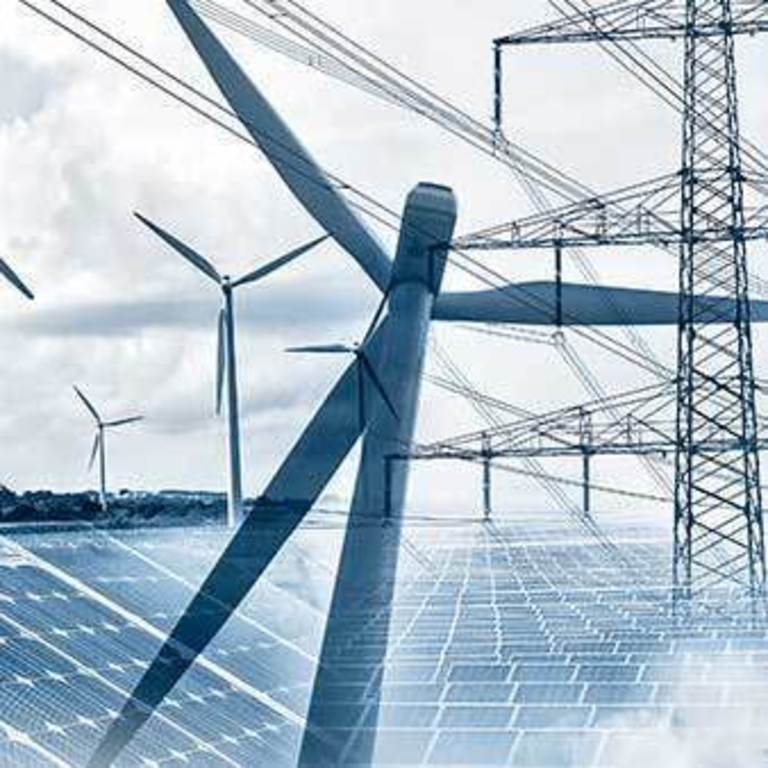Renewable energy sourcesare key to the future of energy security and sustainability. Thereare many forms ofrenewable energy sources, each has its pluses and drawbacks. Our team specialise in Solar Photovoltaic (PV), Wind Turbines (WT), and Hydrogen Fuel Cells, in particular Proton Exchange Membrane Fuel Cells (PEMFCs). We also specialise in Electrolysis, Lithium-ion, Redox Flow batteries and Flywheel as energy storage systems. We optimise the design of those technology systems based on their applications and power requirements. We also create a tailored hybrid design combining all those technologies for optimal system efficiency and utilisation.
Grid integration of renewables is concerned with determining the optimal technical and regulatory framework that can effectively manage the short term and long term challenges of large scale renewable power systems. Our team have been involved in some of the planning challenges which addresses the allocation of long term capacity credits of wind and solar power generation. Our previous analysis shows that the cost of a number of balancing technologies is expected to play a major role in overall viability of renewable power generation. This includes energy storage, demand side management, and dynamic ratings of assets. Our team also explored the potential of smart grids in utilizing the full potential of renewable power generation as well as balancing the technologies.
The intermittent characteristicsof RES and the added complexity of their integration with the grid makes the use of modelling tools a necessity. At Tech, we develop a novel algorithms and calculation tools with the aim to improve the RES generation forecast and operational planning as well as to enhance the energy demand response strategies. Our mathematical models employ scenario analysis based on weather forecast and geospatial data giving accurate projections of power system reliability, greenhouse gas emission, cumulative financial costs, natural resources use, and energy efficiency. Our solution can be extended to tackle local, national, and international energy challenges.
The electric power supply chain has three main components: generation, transmission, and distribution. Electricity is generated at the power plant and flows through the transmission grid at high voltage before reaching the end users at usable low voltage level. Power generators must adjust the demand and supply of power as storing electricity is currently not cost-efficient. Our team have been working closely with Transmission System Operators (TSO), Distribution System Operators (DSO) and Energy Service Providers (ESP) to develop the necessary hardware and software solutions to increase grid observability, deliver better network security margin, enable new additional resources for power back-up, and support participation of energy stakeholders to the wholesale electricity market.
The automotive industry is shifting towards electrified vehicle technology due to the harmful greenhouse gases emitted from the conventional combustion engine vehicles. This shift is occurring across all segments of the automotive industry, aligned with technology roadmaps, international strategy and forthcoming legislation. At Tech, we offer technical support in the design of hybrid vehicle powertrain architectures and key design attributes including energy storage and regenerative braking systems. We also assess different fuel economy cycles including Well-to-Wheel and Tank-To-Wheel analysis.


